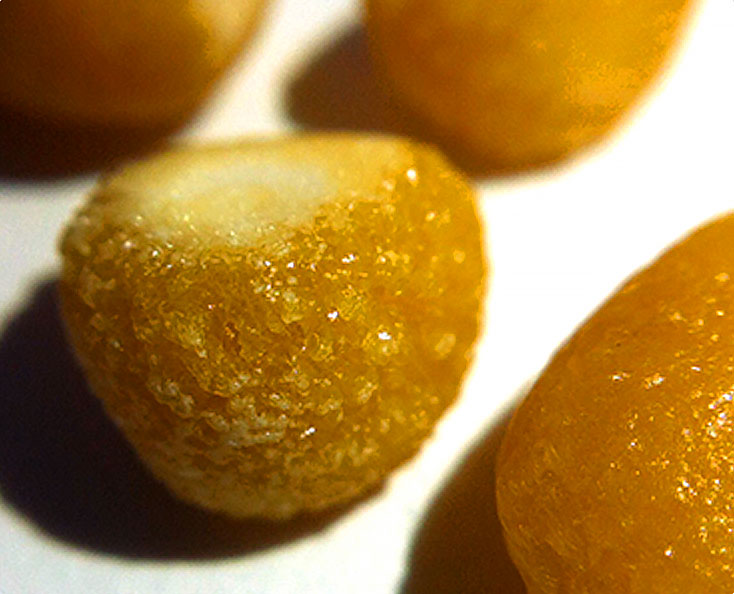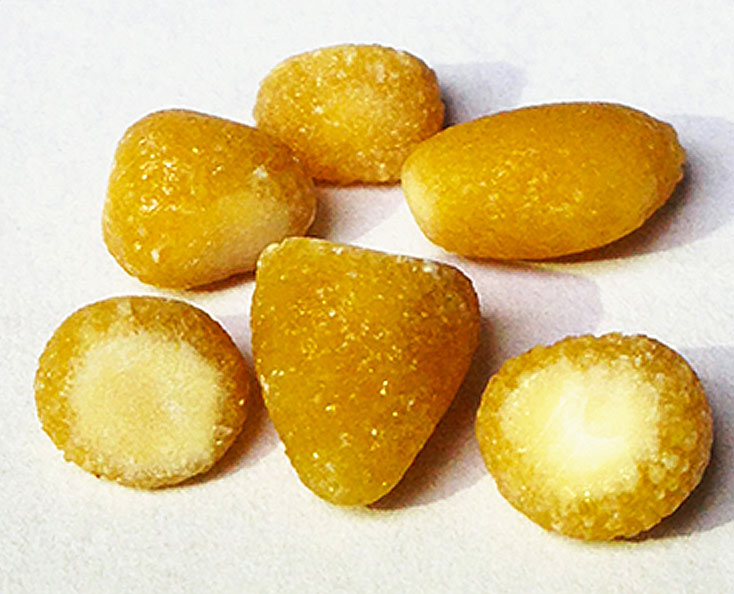Cystinuria is a rare, lifelong, genetic disorder in which too much of a certain amino acid, called cystine, builds up in the urine
Watch this video to get more information about cystinuria.
Cystinuria, a genetic condition, is caused by defects in certain proteins that normally help remove cystine from the urine.
When there are high levels of cystine in the urine, crystals can form and grow into stones. Cystine stones can be found in the kidneys, bladder, or anywhere in between.
People with cystinuria will continue to form stones. The number and frequency of cystine stone formation varies by individual.
Cystine stones are typically larger and harder than other types of kidney stones and often require medical procedures to remove
Pain and disruption of normal daily life are often unfortunate consequences of living with cystinuria.


Photo credit: Florian Buchkremer
The higher your cystine levels, the more likely you are to form stones
Your doctor diagnosed you with cystinuria because you have excess cystine in your urine and are at risk of forming chronic stones.
The American Urological Association emphasizes the importance of using a 24-hour urine test not only to diagnose cystinuria but also as a way for you and your doctor to monitor your cystine level.
Your doctor may also perform a stone analysis or order imaging tests to help understand more about your condition.
Stone prevention begins with early recognition of cystine buildup.
View this video to get more information about the signs and symptoms of cystinuria.
The American Urological Association emphasizes the importance of using a 24-hour urine test not only to diagnose cystinuria but also as a way for you and your doctor to monitor your cystine level.
Your doctor may also perform a stone analysis or order imaging tests to help understand more about your condition.
Stone prevention begins with early recognition of cystine buildup.
Fast facts about living with cystinuria
Cystinuria can pose significant challenges. Read some quick facts below to help you better understand your condition.
It has been reported that patients experience an average of 1 stone formation per year.
Up to 70% of patients experience long-term kidney disease.
Patients undergo an average of 1 surgical procedure every 3 years, with 7 surgical procedures by middle age.
About 1 in 7,000 people in the United States live with cystinuria.
More than 80% of people with cystinuria develop cystine kidney stones by age 20.
Cystinuria is the cause of approximately 10% of all kidney stones in children.
THIOLA EC® (tiopronin, delayed-release tablets)
Important Safety Information
What is THIOLA EC® (tiopronin, delayed-release tablets)?
THIOLA EC is a prescription medication provided in a delayed-release tablet. It is used in combination with high fluid intake, alkali (low acid), and dietary changes to help prevent the formation of one type (cystine) of kidney stones in certain adult and pediatric patients that weigh at least 44 pounds (20 kg) and who do not respond to these measures alone.
Who should not take THIOLA EC?
THIOLA EC should not be taken if you:
- Are allergic to THIOLA EC, or any of the ingredients in THIOLA EC.
What should I tell my doctor before taking THIOLA EC?
THIOLA EC may not be right for you. Before taking THIOLA EC, tell your doctor about:
- all health conditions you may have and any medications you may be taking
- if you are pregnant or plan to become pregnant
- if you are breastfeeding or plan to breastfeed
What should I avoid while taking THIOLA EC?
You should avoid drinking alcohol 2 hours before and 3 hours after taking THIOLA EC.
What are possible side effects of THIOLA EC?
Serious Side Effects: THIOLA EC can cause proteinuria (high amounts of protein in urine), including serious kidney problems, and hypersensitivity reactions (including fever, rash, joint pain and enlarged or swollen lymph nodes).
Most Common Side Effects: Nausea, diarrhea or soft stools, sores in the mouth, rash, fatigue, fever, muscle or joint pain, high amounts of protein in urine, vomiting.
These are not all the possible side effects of THIOLA EC. Call your doctor for medical advice about side effects.
You may report negative side effects to Travere Therapeutics Medical Information at 1-877-659-5518, or to the FDA at 1-800-FDA-1088 or www.fda.gov/medwatch.
Please click here for full Prescribing Information and additional Important Safety Information.
THIOLA® (tiopronin)
Important Safety Information
What is THIOLA® (tiopronin tablets)?
THIOLA is a prescription medicine. It is used in combination with high fluid intake, alkali (low acid), and dietary changes to help prevent the formation of one type (cystine) of kidney stone in certain adult and pediatric patients that weigh at least 44 pounds (20 kg) and who do not respond to these measures alone.
Who should not take THIOLA?
THIOLA should not be taken if you:
- Are allergic to THIOLA, or any of the ingredients in THIOLA.
What should I tell my doctor before taking THIOLA?
THIOLA may not be right for you. Before taking THIOLA, tell your doctor about:
- all health conditions you may have and any medications you may be taking
- if you are pregnant or plan to become pregnant
- if you are breastfeeding or plan to breastfeed
What are possible side effects of THIOLA?
Serious Side Effects: THIOLA can cause proteinuria (high amounts of protein in urine), including serious kidney problems, and hypersensitivity reactions (including fever, rash, joint pain and enlarged or swollen lymph nodes).
Most Common Side Effects: Nausea, diarrhea or soft stools, sores in the mouth, rash, fatigue, fever, muscle or joint pain, high amounts of protein in urine, vomiting.
These are not all the possible side effects of THIOLA. Call your doctor for medical advice about side effects.
You may report negative side effects to Travere Therapeutics Medical Information at 1-877-659-5518, or to the FDA at 1-800-FDA-1088 or www.fda.gov/medwatch.
Please click here for full Prescribing Information and additional Important Safety Information.
